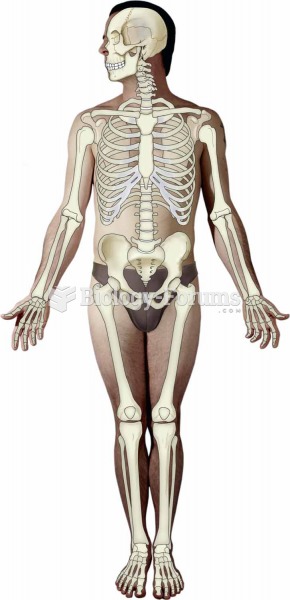|
|
|
Approximately 500,000 babies are born each year in the United States to teenage mothers.
More than 34,000 trademarked medication names and more than 10,000 generic medication names are in use in the United States.
Approximately 25% of all reported medication errors result from some kind of name confusion.
Your skin wrinkles if you stay in the bathtub a long time because the outermost layer of skin (which consists of dead keratin) swells when it absorbs water. It is tightly attached to the skin below it, so it compensates for the increased area by wrinkling. This happens to the hands and feet because they have the thickest layer of dead keratin cells.
To maintain good kidney function, you should drink at least 3 quarts of water daily. Water dilutes urine and helps prevent concentrations of salts and minerals that can lead to kidney stone formation. Chronic dehydration is a major contributor to the development of kidney stones.







